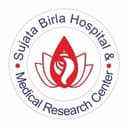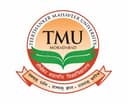Bachelor of Science (BSc) in Medical Imaging Technology
OR
Prepared by Docthub Courses Team ∣
Last updated on 01 Aug 2024
Overview
The Bachelor of Science (B.Sc) in Medical Imaging Technology is a specialized undergraduate degree that focuses on the use of imaging techniques to diagnose and monitor various medical conditions.
B.Sc Medical Imaging Technology Course Details encompasses a broad range of technologies, including X-rays, MRI, CT scans, ultrasound, and nuclear medicine, among others.
Students are trained in the technical aspects of these imaging modalities and the interpretation and analysis of medical images, safety protocols, and patient care practices.

Table of Content
What is Bachelor of Science (B.Sc) in Medical Imaging Technology?
The B.Sc in Medical Imaging Technology is a comprehensive program that blends theoretical knowledge with practical skills to prepare students for careers in the field of medical imaging. The curriculum typically includes core science subjects such as physics, anatomy, and biology, alongside specialized courses in radiographic techniques, medical instrumentation, image analysis, radiation safety, and quality control.
Highlights
| Particulars | Bachelor of Science (B.Sc) in Medical Imaging Technology |
| Course Type | Undergraduate Degree |
| Duration | 3 Years |
| Eligibility | 10+2 or equivalent examination from a recognized board with a minimum percentage requirement of 50% |
| Admission Process | Entrance Exams/Merit-based Selection/Both |
| Fees | INR 2,00,000 – 5,00,000 |
| Colleges in India | All India Institute of Medical Sciences (AIIMS) National Institute of Mental Health and Neurosciences (NIMHANS) Christian Medical College (CMC) St. John's Medical College Sri Ramachandra Institute of Higher Education and Research (SRMC) |
| Job Roles | Radiologic Technologist MRI/CT Technologist Ultrasound Technologist Nuclear Medicine Technologist Quality Assurance/Quality Control Specialist Clinical Applications Specialist Research Associate |
| Salary | INR 3 –10 LPA |
Eligibility
B.Sc Medical Imaging Technology Eligibility criteria typically need a high school diploma or equivalent, with a strong background in science subjects like biology, chemistry, and physics.
Additionally, some institutions might conduct entrance exams or interviews to assess candidates' aptitude for the course.
Fees
The B.Sc Medical Imaging Technology Fees in India can vary depending on the college or university. They typically range from Rs. 2 to Rs. 5 lakhs for the entire duration of the program.
Who Should Do This Course?
This course is ideal for individuals who have a keen interest in medical science, technology, and healthcare.
Candidates who enjoy problem-solving, critical thinking, and working with sophisticated technology will find this course appealing.
It is also suited for those who have a compassionate approach to patient care and can work effectively in a fast-paced, collaborative environment.
Why Study This Course?
Studying a B.Sc in Medical Imaging Technology offers numerous benefits:
- Gain knowledge and skills in a range of advanced imaging technologies.
- Develop hands-on experience through clinical training in hospitals and diagnostic centers.
- Contribute to patient care and medical diagnosis, playing a critical role in healthcare teams.
- The demand for medical imaging professionals is rising, providing various career options.
- This field is constantly evolving with technological advancements, offering opportunities for continuous learning and career progression.
Admission Process
The Bachelor of Science (B.Sc) in Medical Imaging Technology Admission Process in India can vary between institutions, but it generally follows a set of common steps:
- Research Programs: Identify institutes offering B.Sc. in Medical Imaging Technology and research their eligibility criteria, admission process, and entrance exams (if applicable).
- Apply Online: Fill out the online application form on the institute's website, providing your academic details and entrance exam scores (if required).
- Entrance Exam (if applicable): Take the institute's entrance exam or any national-level exam you're applying for.
- Selection Process: Based on your application, entrance exam scores (if applicable), and merit (for merit-based selection), the institute will shortlist candidates.
- Counseling (if applicable): Attend counseling sessions if required and choose the institute based on your rank and seat availability.
- Document Verification and Fee Submission: Submit the required documents and pay the admission fees to confirm your seat, which may include:
- High school transcripts and certificates.
- Proof of identity.
- Passport-sized photographs.
- Completed application form.
- Any other documents specified by the institution.
Entrance Exam
Admission to B.Sc. in Medical Imaging Technology programs in India is often based on entrance exams.
The specific entrance exam may vary depending on the college or university. Some common entrance exams include:
- All India Institute of Medical Sciences (AIIMS) entrance exam
- Delhi University Entrance Test (DUET)
- Jawaharlal Nehru University Entrance exam (JNU)
- All India Council for Technical Education (AICET) exam
Syllabus
B.Sc Medical Imaging Technology Syllabus covers various subjects such as:
| Year/Semester | Courses |
Semester 1 Human Anatomy and Physiology Physics for Medical Imaging Radiographic Equipment and Operation Medical Ethics and Communication Skills Computer Fundamentals Semester 2 Pathology and Microbiology Radiographic Techniques - I Radiation Biology and Protection Medical Imaging Informatics English for Medical Purposes Semester 3 Radiographic Techniques - II X-Ray Physics and Techniques Fluoroscopy Patient Care and Management Research Methodology and Biostatistics Semester 4 Advanced Radiographic Techniques Sectional Anatomy – I Introduction to Ultrasonography Quality Management in Medical Imaging Elective – I Semester 5 Sectional Anatomy – II Magnetic Resonance Imaging (MRI) Computed Tomography (CT) Nuclear Medicine Technology Elective – II Semester 6 interventional Radiology Pediatric Imaging Radiotherapy and Oncology Project Work/Internship Elective Courses: Mammography Dental Radiology Cardiac Imaging Advanced MRI and CT Techniques |
Top Colleges
Top B.Sc Medical Imaging Technology Colleges in India are:
- All India Institute of Medical Sciences (AIIMS) New Delhi
- National Institute of Mental Health and Neurosciences (NIMHANS) Bengaluru
- Christian Medical College (CMC) Vellore
- St. John's Medical College Bengaluru
- Sri Ramachandra Institute of Higher Education and Research (SRMC) Chennai
Scope
The scope of the B.Sc in Medical Imaging Technology is broad, covering a range of imaging modalities and their applications in diagnosing and monitoring diseases.
Graduates can work in hospitals, diagnostic centers, clinics, and research institutions.
They play an essential role in aiding physicians and specialists in diagnosing illnesses, planning treatments, and monitoring patients' progress.
Further Study Options
After completing the B.Sc in Medical Imaging Technology, graduates can pursue further studies to specialize or advance their careers. Some options include:
- Master's in Medical Imaging Technology
- Postgraduate Diplomas
- Research Degrees
- Professional Certifications
Career Opportunities After This Course
Graduates with a B.Sc in Medical Imaging Technology have diverse career opportunities, including:
- Radiologic Technologist
- MRI/CT Technologist
- Ultrasound Technologist
- Nuclear Medicine Technologist
- Quality Assurance/Quality Control Specialist
- Clinical Applications Specialist
- Research Associate
Salary
B.Sc in Medical Imaging Technology Salary can range from Rs. 3 lakhs to Rs. 10 lakhs per annum in India.
Salary can vary depending on experience, location, and the specific job role.
Explore colleges for this course
Quick Go Links

Explore this course by location..
by States
by Cities
Related Job Roles
Related Job Vacancies
View All 132 Jobs

FAQS
What is a Bachelor of Science in Medical Imaging Technology?
A Bachelor of Science (BSc) in medical imaging technology is an undergraduate degree program that focuses on the theory and practice of medical imaging techniques, such as radiography, computed tomography (CT), magnetic resonance imaging (MRI), and ultrasound.
How to get a degree in medical imaging technology?
To get a degree in medical imaging technology, you typically need to complete a 4-year bachelor's degree program at a university or college that offers this specialization.
Is BSc. medical imaging technology a good course?
Yes, a BSc in medical imaging technology is generally considered a good course, as it provides a solid foundation in medical imaging technology and opens up various career opportunities in the healthcare sector.
What is the scope of BSc medical imaging technology?
The scope of a BSc in medical imaging technology includes working as a medical imaging technologist in hospitals, clinics, diagnostic centers, and research facilities.
What is the difference between BSc radiology and BSc medical imaging technology?
The main difference between a BSc in radiology and a BSc in medical imaging technology is the focus of the program.
Radiology is more focused on the medical interpretation and diagnosis of medical images, while medical imaging technology focuses on the technical aspects of operating and maintaining the imaging equipment.
Related Course titles

Qualifications
12th Science PCB
Related Specialty
Oncology Imaging
Critical Care Imaging





